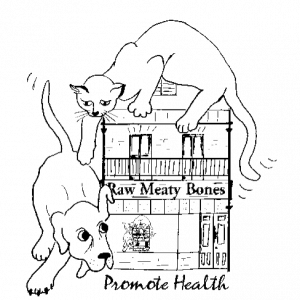An Open letter to Competition & Markets Authority
June 2024
Open letter of complaint: Competition & Markets Authority
Review of the UK Veterinary Sector
In accordance with the Competition & Markets Authority (CMA) Complaints Procedure I hereby lodge a complaint regarding the CMA Veterinary services for household pets, Market Investigation Case, Terms of reference, Consumer tips and matters arising.
In my view the CMA is negligent and in breach of its own Vision, Values and Strategy.
Specifically, I believe that the CMA not only fails in its mission, but by virtue of its failure it gives comfort to and aids and abets a multi-billion-pound distortion of the market arising from collusion between transnational pet food companies, the organised veterinary profession and animal welfare organisations.
In the face of overwhelming evidence contained in the book Multi-Billion-Dollar Pet Food Fraud: Hiding in Plain Sight the CMA Terms of reference and Consumer tips resemble plot lines for Yes Minister or a Whitehall Farce. Although it’s doubtful those art forms would dare imitate the real-life unremitting animal cruelty and consumer fraud of the junk pet food cabal!
The CMA, rather than be a part of the solution, is now a part of the problem.
The CMA acknowledges and states:
The CMA has reasonable grounds to suspect that a feature or a combination of features of the market for the supply of those goods and services in the UK prevents, restricts, or distorts competition.
However, it’s my contention that the CMA has limited its investigations to superficial aspects of the market, despite being aware of systemic illegal and likely criminal conduct on the part of the suppliers of artificial foodstuffs and veterinary services. The CMA appears to be subject to regulatory capture as it conspicuously avoids any mention of the junk pet food/vet/fake animal welfare alliance and the massive imposts on British society.
The CMA gives consumers a false sense of security allowing the transnational pet food companies—principally Mars Inc., Nestlé and Colgate-Palmolive—in conjunction with the veterinary establishment—principally the Royal College of Veterinary Surgeons (RCVS), British Veterinary Association, British Small Animal Veterinary Association and the eleven UK veterinary schools—to continue in unholy alliance.
The CMA places the onus on uninformed consumers to choose veterinary services based on proximity, pricing, ownership, size and facilities, payment plans and out of hours services. This superficial series of criteria delivers hapless, helpless consumers into the clutches of veterinary service providers who, almost without exception, endorse and sell harmful ultra processed ‘foodstuffs’ that inevitably give rise to chronic and acute diseases in the animals obliged to subsist on such substances.
Without informing their clientele, the veterinary service providers then engage in massive overservicing of the vast number of diet-affected patients. In case of doubt, just as a car performs best when provided with the recommended fuel, the same pertains to animals provided the correct foodstuffs. Cars need few mechanical services, pets need few, even zero vet services when treated humanely and fed appropriately.
Most carnivores kept in zoos are fed appropriately and seldom need veterinary services. By contrast a vast population of junk food fed pets are afflicted by numerous diet-induced diseases and their owners, oblivious to their plight, are required by the CMA to run around in random fashion seeking the cheapest vet on the block!
Additional evidence
The distortion of the veterinary markets starts with institutionalised malfeasance and maladministration at the top. By way of illustration, I offer:
- Various pieces of evidence including 24 consecutive RCVS anual elections, British Parliamentary Action and selected RCVS Correspondence.
- 2024 RCVS Elections with evidence of RCVS malfeasance. Otherwise please note that 257 registered veterinary surgeons supported the call for radical overhaul of a corrupt RCVS.
- Petition: Inquiry into the pet food industry and its relationship with the vet profession.
- Various UK and Australian parliamentary investigations and submissions.
- Lawsuit before the USA, Kansas District Court revealing the pet food industry/veterinary modus operandi in respect to manipulation of evidence within veterinary communication channels. Subterfuge in respect to dilated cardiomyopathy and to condemnation of natural foods is revealed. It’s the pattern that is played out constantly at all times at all levels of the vet profession marching in tight embrace with the junk pet food industry.
- When Professor Colin Harvey wished to perform a simple comparison between the effects of a processed diet as compared to a raw meaty bones standard, he was effectively banned. No long-term comparison trials have ever been published to show the difference between the natural standard and the manufactured ultra-processed replacement. Of course, the onus of proof is with the manufacturers and their veterinary allies, but they’ve avoided that responsibility. Most veterinarians prefer not to rock the boat, to abide by self-censorship. Despite the well-known impact of ultra-processed diets on human health, such further veterinary investigations cannot be funded, cannot be carried out in veterinary schools and cannot be published in the veterinary press.
- Here are a series of typical cases that illustrate the vet profession’s refusal to acknowledge that diet and related oral disease underpins most/all pet health issues. Consumers, in the cases depicted, pay considerable costs to ‘conventional’ vets for their misdirected treatment. Those costs rise steeply due to the massive overservicing involving unnecessary tests and procedures that inevitably arise as practitioners pursue wrong theories down wrong pathways. Of course, we need to remind ourselves that the animals pay great costs in their unremitting pain, suffering and distress.
- In the same way that the CMA has refused to acknowledge and deal with the indictment and prosecuting evidence in Multi-Billion-Dollar Pet Food Fraud, the same pertains to the established veterinary profession. They dodge and obscure the issues. At the time of writing no veterinary journal or veterinary organization has agreed to review the book and thus communicate its existence to a dependent veterinary community. The most common response is refusal even to acknowledge receipt of email correspondence. For the veterinary establishment, and the RCVS in particular, it’s a dead subject never to be admitted into veterinary discourse.
Foundation support - In the 1990s several eminent Australian veterinarians lent their support to the raw meaty bones campaign for pet health and vet profession accountability. http://www.rawmeatybones.com/vetsay.php
- In 2004 the book Raw Meaty Bones: Promote Health was nominated for the Australian College of Veterinary Science (ACVSc) College Award. The book did not receive the award, but it should be noted that the ACVSc works closely with the junk pet food industry with particular reference to Hill’s a division of Colgate-Palmolive. ACVSc members are mostly veterinary academics who work in universities beholden to the junk pet food industry.
- In 1993 Dr Douglas Bryden AM, Director of the Sydney University Center for Veterinary Education commissioned me to write the definitive chapter on the treatment of and prevention of diet related oral disease and systemic ill-health. In the absence of any other chapter or article on Preventative Dentistry, then that article sets the accepted standard for all veterinarians everywhere.
- In 2018 Associate Professor Richard Malik editor at the Sydney University Center for Veterinary Education commissioned me to write Raw Meaty Bones Essentials, the definitive article on the correct feeding of carnivores to ensure vital physical and nutritional needs are met for our companion carnivores.
- In 2024 the Dog Writers Association of America awarded first prize to the website www.ThePetFoodCon.com. Multi-Billion-Dollar Pet Food Fraud: Hiding in Plain Sight was awarded Best Reference Book and Best Book of the Year 2023.
- Multi-Billion-Dollar Pet Food Fraud: Hiding in Plain Sight continues to garner five star reviews from ordinary citizens who are aghast at the evidence the book contains.
Conclusion
The foregoing reveals widespread failure of systems designed to safeguard the public interest. In the first instance the small animal veterinary profession is shown to be founded on fallacy living a lie. The rank absurdity that ultra processed packaged products can even marginally be suitable and safe for the lifetime nutritional and medicinal needs of carnivorous animals beggars belief.
Signed:

Dr Tom Lonsdale

